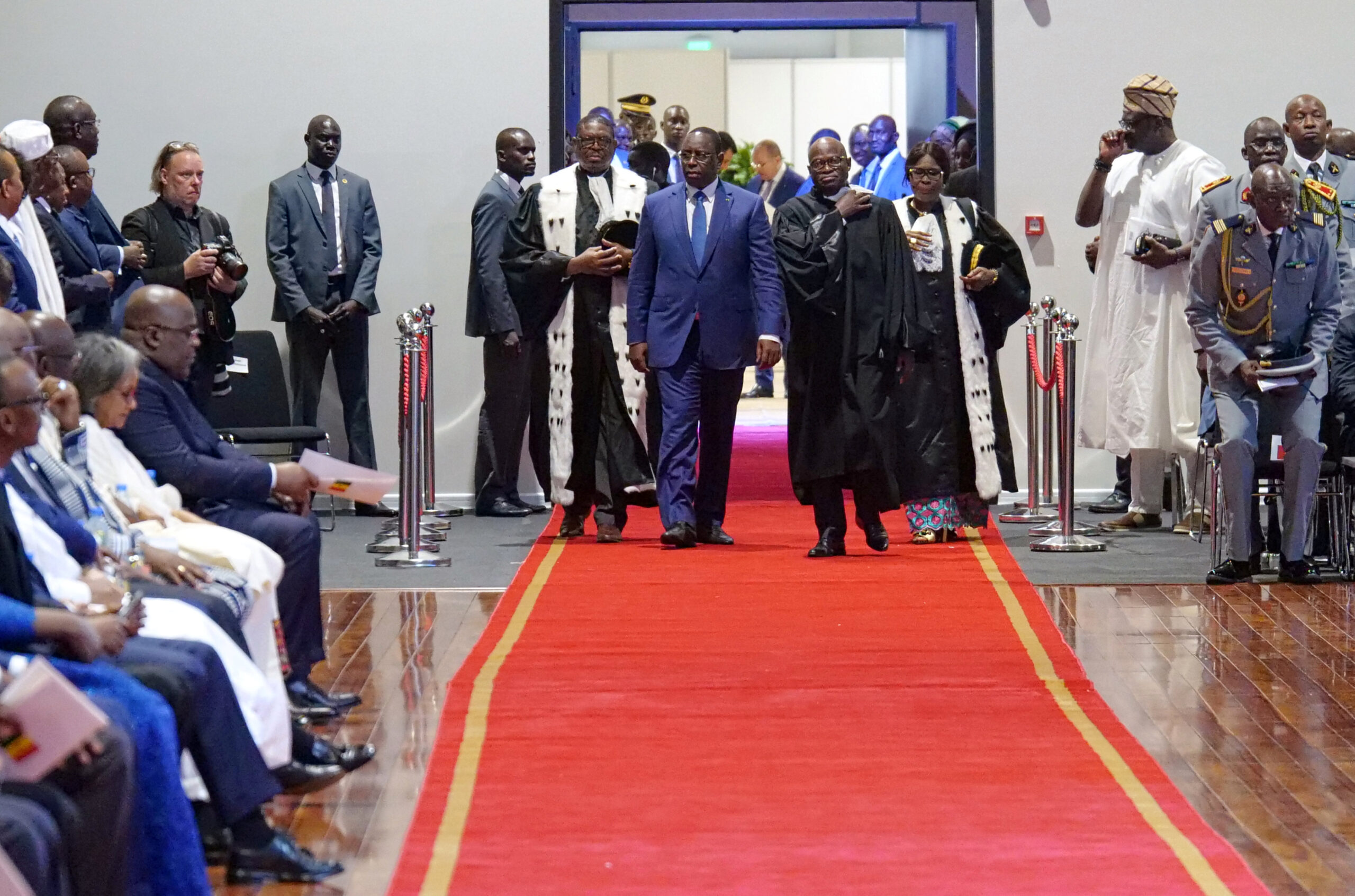
Senegal: What is in store for Macky Sall’s second term?

As you drive out of Senegal’s new Blaise Diagne International Airport towards the capital of Dakar, the sign to Diamniadio is one of the first sights along the highway.
It is a convenient first impression for first-time visitors, reflecting President Macky Sall’s industrial ambitions for Senegal, with the futuristic city of Diamniadio at the centre. Slick, modern buildings, construction sites, and development.
These are the projects and industrial successes that Sall’s team played on in February’s elections, helping him to secure a 58% win against four other candidates.
It seems apt then that Sall’s inauguration on Tuesday takes place Diamniadio’s Exhibition Centre, a visual representation of his presidential promise to transform Senegal into an emerging economy by 2035.
Several African leaders were in attendance, including President Muhammadu Buhari of Nigeria and his Rwandan counterpart Paul Kagame, as well as prime ministers and other delegations from across the world.
Industrial promises
Sworn in for his second and last term, Sall now has five years left to fulfil his promises of a Senegal on the path to development.
Sall supporters expect to see a continuation of the rapid expansion of infrastructure, which marked the president’s first term. Alongside the ongoing contribution of Diamniadio, there has been a number of notable accomplishments including the inauguration of a bridge across the Gambia River and construction of new and improved roads across the country.
However, not everyone sees Sall’s renewed term in office as a hopeful development for the country.
While many have lauded Sall for some of his industrial schemes, others have been widely rejected. Notably, Macky Sall’s Bargny coal burning project has been at the centre of protests. The pollution of the new coal power plant in the nearby village of Sendou has impacted local communities, evoking calls for the country to move towards renewable energy.
Alongside this, critics of Sall see the president’s emphasis on infrastructure as consolidating economic gains among Senegal’s elite, while the majority of the country suffers from a failed education system, precarious healthcare, and high levels of unemployment.
“People are hoping for employment for youth,” Seydi Gassama, executive director of Amnesty International Senegal, told CGTN. “The unemployment rate among youth is very high. If the president does not deal with issue of employment with youth, then the country may be in trouble.”
This frustration was reflected by the growing interest in newcomer politician Ousmane Sonko, who finished third in the elections and whose anti-establishment rhetoric garnered popular support among the youth.
“There are so many difficulties in Senegal, the health and education system is almost paralyzed. Also, the rate of unemployment is a very serious concern for us…To speak the truth, Senegal is in a very hard place,” said Anta Fall, a 25-year-old student at Cheikh Anta Diop University in Dakar. “These are areas that we expect [the president] to find solutions to immediately,” she added.
The next five years
In his inauguration address, Sall noted a number of these concerns, vowing to act as president “for all of Senegal and the Senegalese people” and reiterated his call for constructive, open and all-inclusive dialogue.
In the first speech of his second term, Sall promised to “strengthen the gains” of the first term, continuing and accelerating industrial projects to put Senegal on the map as an emerging economy by 2035.
Outside of industry, the president went on to address social concerns, vowing to make youth a “priority through employment and training policies that promote entrepreneurship and new technologies “.
He also committed to ensuring “public policies for women and girls”, the promotion of “decent housing” and the “safeguarding of the environment”.
It remains to be seen if Sall will live up to these promises.
Senegal’s opposition parties now have five years to regroup in preparation for the next elections. Barring any unexpected controversies, Macky Sall will not be on the ballot for the 2024 elections, paving the way for a new generation of leaders.






